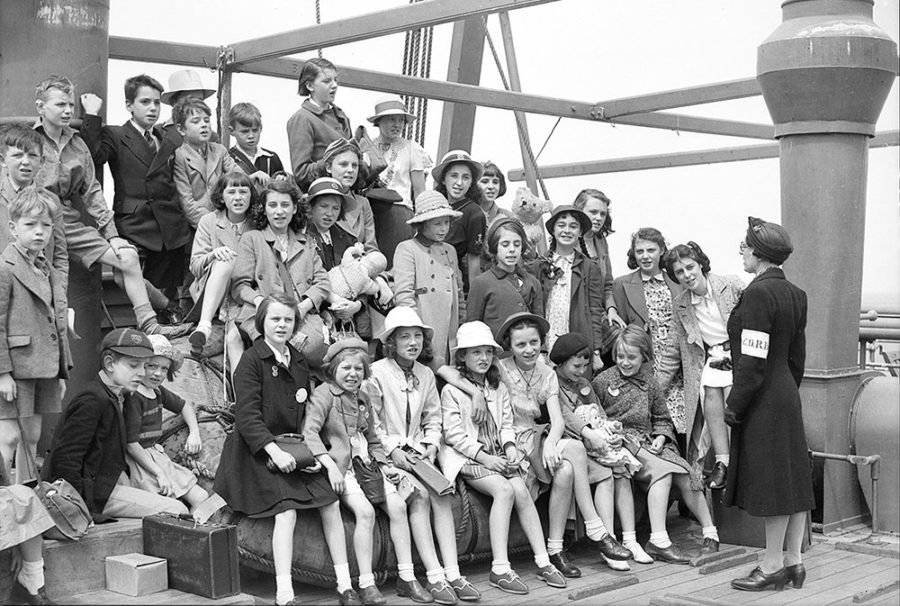Snapshot: The singing child evacuees of World War II

In June 1940, the threat of a German invasion of Britain became a real possibility as Nazi troops advanced across Western Europe. Thousands of children had already been dispatched by parents to the perceived safety of relatives outside of the European theatre of war. Churchill’s government sought to provide a similar opportunity for children of less affluent parents. That month it established the Children’s Overseas Reception Board (CORB), and, within a fortnight, more than 200,000 requests had been received from desperate parents seeking to save children from the enemy now virtually at their gates and the bombs raining down nightly from the skies above.
Between July and October, 3100 children were shipped off to corners of the empire, including Canada, South Africa, New Zealand and Australia. The benefits of evacuation were deemed to outweigh risks posed by the German U-Boats en route. Each ship sailed with an escort of warships and merchant ships commandeered for the war effort. Three of the ships sailed from Liverpool bound for Australia carrying 577 children.
The largest of these was the Batory, a luxury Polish liner of the Gdynia-America line. As the vessel slipped her moorings on 5 August, aboard there were 477 children and 51 escorts assigned to care for them, as well as 700 troops, the Polish crew and a few first-class passengers. With a heady mix of anticipation, dread, sadness and seasickness, these youngsters embarked on a great adventure, leaving behind loving families with no notion of when they would finally be reunited.
Disaster strikes
On 17 September disaster struck when another evacuee ship, the City of Benares, was torpedoed on its way to Canada, resulting in the loss of 77 CORB children. It marked the end of overseas evacuation efforts, but those ships already underway continued on to their scheduled destinations.
The daily routine of the 10-week voyage aboard the Batory was influenced by the presence of Meta Maclean, an Australian songwriter, pianist and radio announcer who had been appointed as an escort. Most public areas aboard the liner had a piano and Meta’s chirpy nature and musical talent brought a kind of enjoyable discipline to the long days at sea. She formed various children’s choirs and organised singalongs and concerts that involved the soldiers and the Polish crew, who poignantly sang songs of their German- occupied homeland. On Sundays, religious services were held and the strains of hearty hymn singing rang throughout the ship.
Once in Australia, most evacuees went to live with suburban families. The war dragged on until 1945, longer than anyone had expected when hasty decisions to send their offspring away were made. On the whole, the experience was positive for the children, but the separation undoubtedly took its toll on family ties.
Far away from nightly air raids and rationing, the kids thrived in the Australian sunshine and outdoor way of life. After the war the majority returned to their families, with just a handful of older children staying behind. Eventually, however, at least one-third of those original 577 evacuees returned to make Australia their home.

